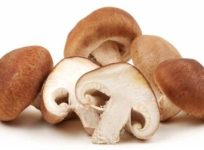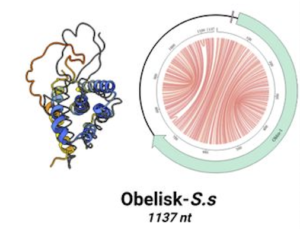Given that it’s such a significant trigger for patients with Celiac disease and other forms of gluten intolerance, it may seem surprising that removing gluten from the diet of healthy patients could detrimentally impact their gut bacteria.
Dr. O’Bryan explained that in individuals who consume gluten regularly, the body becomes dependent on FODMAPs, short for Fermentable Oligosaccharides, Disaccharides, Monosaccharides and Polyols, a group of carbohydrates found in many foods. FODMAPs are poorly digested and absorbed by some individuals and may be fermented by bacteria in the gut, contributing to numerous unpleasant GI symptoms. For those used to eating wheat, going gluten-free may eliminate important prebiotics from their diet.
In a 2010 paper, Sanz notes that in all individuals, the gut’s bacterial diversity is “susceptible to the influence of the diet and, especially, to the quality and quantity of ingested carbohydrates.” The reduced polysaccharide intake associated with the gluten-free diet could, Sanz writes, “explain the observed changes in the microbiota, since these dietary compounds usually reach the distal part of the colon partially undigested, and constitute one of the main energy sources for commensal components of the gut microbiota.”
These bacteria promote the utilization of non-digestible carbohydrates, which gives them a competitive edge over potentially pathogenic bacteria that might otherwise colonize the intestine. When the growth of beneficial bacteria is not supported due to a reduced supply of their main energy source, an overgrowth of other bacterial groups, including opportunistic pathogens, can lead to intestinal dysbiosis (Sanz, Y. Gut Microbes. 2010; 1(3): 135-137).
Make Changes, Carefully
All of these findings underscore the fact that dietary changes need to be undertaken carefully. Radical moves–even if made in a “healthy” direction–can have unintended consequences if one does not recognize and respect the profound complexity of the microbiome and its entwinement with our human physiology.
Because diet profoundly influences microbial diversity, and therefore general health, Dr. O’Bryan encourages physicians to address the microbiome not just as an add-on, but as the foundation of any patient’s treatment plan.
Probiotics are widely recommended in treating an altered gut microbiome. But O’Bryan cautions that they should be utilized as a complement, instead of an alternative, to dietary adjustments. The first and most important plan of action is to make a very careful assessment of patients’ food selections, and then to offer dietary coaching to those needing extra support in making healthy choices.
Knowing that all foods have the capacity to help heal – or harm – the gut, he suggests teaching patients to always ask one simple question when considering any food: “What is the benefit in the gut?”
Access Dr. O’Bryan’s lecture, along with all the rest of the fantastic talks from Heal Thy Practice 2015 on the Holistic Education Exchange.
END








